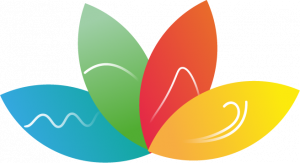Lesson Plans
Rowing Race at Latvian Fishermen’s Festival
Airēšanas sacīkstes Latviešu zvejnieku svētkos
- Latvia
- Water
- B1
Warming Up
- Do you think this activity is fun?
- Where is this activity taking place?
- Do you have similar activities near you?

Vocabulary
Cultural Heritage Background
In the past, around 100 years ago, printed papers say that fishermen began to have festivals to honour the sea and fishermen. People came from fishing villages nearby, but people who came from far away were also welcome. Some even came from Estonia! During the celebration, there were many things to do, but the most popular events were rowing races.
- Image Hotspots
Get to know the rowing competition!

Image source: https://www.flickr.com/photos/liepaja_lv/
Boat – (noun) a small vessel for travelling over water, propelled by oars, sails, or an engine: “a fishing boat”.
Oar – (noun) a pole with a flat blade, used to row or steer a boat through the water: “she/he pulled hard on the oars”.
Life vest – (noun) a sleeveless buoyant or inflatable jacket for keeping a person afloat in water.
Hat – (noun) a shaped covering for the head worn for warmth, as a fashion item, or as part of a uniform: “a black straw hat”.
Port – (noun) a town or city with a harbour or access to navigable water where ships load or unload: “the French port of Toulon”.
Listening
Listen and answer the following questions! Or read the text below out loud.
The Fishermen’s Festival was celebrated on the second Saturday of July. The coastal fishermen had less work at sea in July. So, in 1936, the Kurzeme coastal fishermen decided to organise a festival. The festival included competitions! The fishermen’s wives competed in net-shovelling and husbands competed in rowing. Over time, these competitions have become more accessible. They have included disciplines such as lifebuoy, fishing boot throwing, and tug-of-war.
- Why was the Fishermen’s Festival originally created?
- What types of competitions have been a part of the Fishermen’s Festival?
- How do you think the festival will evolve in the future?
Listening Comprehension
Exercise 1. True or False!
Reading the story
The Fishermen’s Festival is a celebration that happens every year on the second Saturday of July. It started a long time ago because coastal fishermen did not have as much work at sea in July. So, in 1936, they decided to organise a festival.
The printed press doesn’t say much about how the Fishermen’s Festival was celebrated in the past. Fishermen and their wives usually prepared in advance – brewing beer, buying vodka, raising a calf and baking white bread. It says in “Fishing Monthly” no. 7: “Fishermen from the coast around them came together. They got there in decorated motor boats, in cars, on horseback, and on foot. The people who came the farthest were the fishermen from the Sloka neighbourhood. They came from Lapmezciems, 150 km away, in a fish truck. About 1000 people came to watch. The little town of Kolkasrags had never seen anything like it.”

At the beginning of the day, there was a church service by the water. There were races with motor boats of different sizes, as well as competitions for rowing and swimming by fishermen. Even back then, it was common for business owners to give the winners prizes like a can of motor oil or half a herring or sprat net. Some business owners used the prize to promote their businesses by offering a meal at the buffet for a certain price.
The Ainaži-Salaca fishermen’s community organised the first united Fishermen’s Festival. Several cars arrived in the morning to bring the first guests to the town. They decorated the cars with national flags in red-white-red.
During the Soviet era, the festival became more popular. It was celebrated all along the coast by fishermen’s collective farms, from Ainazi to Nida at the Latvian-Lithuanian border. Being a fisherman was a respected job. People were proud to beat the other collective farms in the festival, even if they did not catch as many fish.
Different amateur groups put on concerts to honour the Meritorious Fishermen, as well as the winners of socialist competitions, and sports competitions. Over time, it became very popular for Neptune, the king of the sea, to visit the people on land. He came with his company to test out the sea ploughmen and greet them. The main point of the celebrations was to honour and raise awareness of the work that fishermen do.
The festival was celebrated with outdoor performances, concerts, sports games, competitions, and attractions. It stretched from the Estonian border to the Lithuanian border, all along the Baltic Sea coast. And the festival’s final note: a “green ball”, which kept people up all night and until dawn.
The Fishermen’s Festival is still celebrated today. But there are fewer fishermen and fewer boats each year. In 2007, the festival was renamed the Festival of the Sea. It is also celebrated in places far from the sea, like Latgale, where fishing is done in Lake Lubans and its fish ponds.
- Read the text quickly
- Deep reading
Reading Comprehension
Grammar
Additional activities
- Read about the Festival of the Sea 2022 in Liepaja https://www.liepaja.lv/en/discover-and-explore-nature-s-diversity-during-the-sea-festival/
- What new activities took place at the festival?
- What were the main topics at the festival?
- Would you like to participate in this festival?
Extra resources for learners
- Links to 4 Elements in Arts Resource Library
- Watch this video and get to know the Sea Festival in Ventspils, year 2022. https://youtu.be/Q6Vp6IXphYA
- It was better in the old days. Or was it? Watch the Fishermen Festival in Mazirbe, in the year 1936. https://dundagasvesture.wordpress.com/2018/01/24/juras-svetki-mazirbe-1936/
